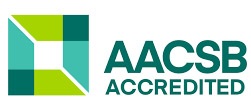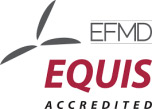About the University
University Highlights
The University of Liège (ULiège), in Liège, Wallonia, Belgium, is a major public university in the French Community of Belgium. As of 2016, ULiège is ranked in the #251–300 category worldwide according to Times Higher Education, 265nd by QS World University Rankings, and between the 205th and 300th place by the Academic Ranking of World Universities. More than 2000 people, academics, scientists and technicians, are involved in research of a wide variety of subjects from basic research to applied research.
University of Liège is located in the heart of Europe and is based in Liège, Belgium. It has direct railway connections with, Antwerp, Namur and Charleroi, Luxembourg, Maastricht in the Netherlands, and Aachen in Germany.
The university campus is located in the outskirts of the city. Easy access, regular public buses travel to and from the city centre in approximately 15 minutes. Close to the city centre yet in a peaceful environment, the campus provides ideal surroundings for academic achievement. Founded in 1817, the University of Liège is the only public Community-sponsored University in the French-speaking part of Belgium which offers a complete range of university modules at undergraduate and postgraduate levels.
HEC Liège Executive Education’s ambition is to enable the School to provide services to the community. It thus puts at the heart of its concerns the companies and organizations offering them tailor-made training.
In addition, the Executive Education is an excellent laboratory to develop bold and creative pedagogies and training devices that aim to percolate towards the initial training.
Ranking and Recognition
1). The only complete public university in the Belgian French-speaking community, the University of Liège prides itself on its pluralistic vision and on its pursuit of excellence in teaching, research, and innovation. It is a member of the Wallonia-Europe University Academy (together with Gembloux Agro Bio Tech)
2). University of Liège is ranked 301 – 350th globally in the Times Higher Education - QS World University Rankings 2017
Source:
https://www.timeshighereducation.com/world-university-rankings/universite-de-liege#ranking-dataset/589595
3). University of Liège is 2009 and 2010 European Credit Transfer and
Accumulation System (ECTS) and Diploma Supplement (DS) Label Holders.
Source:
http://eacea.ec.europa.eu/llp/support_measures_and_network/ects_dsl_en.php
http://eacea.ec.europa.eu/llp/results_projects/ects_ds/2013/list_of_ects_renewal_successful_applications.pdf
http://eacea.ec.europa.eu/llp/results_projects/ects_ds/2013/list_of_ds_renewal_successful_applications.pdf
4). HEC Liège is a member of the US-based Association to Advance Collegiate
Schools of Business (AACSB).
Source:
https://www.aacsb.net/eweb/DynamicPage.aspx?Site=AACSB&WebKey=788e1dc7-9b35-4446-82a1-c88cd07af17d
5). HEC Liège is a member of European Foundation for Management Development (EFMD). Their Master in Management Science and Doctoral program are EPAS (EFMD Program Accreditation System) accredited.
6) HEC Liège is firmly focused on its students, its alumni and its partners. The school's commitment to, and continuing investment in quality improvement has been recognized through the award EQUIS delivered by the International accreditation organism EFMD and AACSB, USA.
The Faculty
The Executive Doctorate in Business Administration is jointly developed and delivered by HEC Liège Executive Education, Management School - University of Liège professors and local lecturers who are skilled educators, researchers, and experienced industry practitioners. The faculty leverages their research and business expertise to impart new knowledge and powerful concepts that shape the future of management. In this program, a powerful and effective teaching team makes every participant embrace multiple perspectives and challenge their thinking to high levels. More detailed biographies in www.hecexecutiveschool.be
World-Renowned Faculty
•Zénon-M. Bacq (1903–1983), radiobiologist
•Florent-Joseph Bureau (1906–1999), mathematician
•Eugène Charles Catalan, mathematician
•André Danthine, computer scientist
•Marcel Florkin (1900–1979), medicine, biochemistry
•Laurent-Guillaume de Koninck (1809–1887), palaeontologist and chemist
•Émile Louis Victor de Laveleye, economist
•Marie Delcourt (1891–1979), classical philologist
•Philippe Devaux (1902–1979), philosopher
•Paul Fourmarier (1877–1970), geologist
•Paul Gochet (1932), philosopher
•Groupe µ, Group of semioticians
•Godefroid Kurth (1847–1916), historian
•Paul Ledoux (1914–1988), astrophysicist
•Jean-Pierre Nuel (1847–1920), physiologist
•Pol Swings (1906–1983), astrophysicist
•Edouard Van Beneden (1846–1910), biologist
•Theodor Schwann (1810–1882), biologist
Notable Alumni
For full list see University of Liège alumni
•Joaquín Arderíus, novelist
•Philippe Bodson, engineer
•Albert Claude, Nobel Prize for Physiology or Medicine in 1974
•Marie Delcourt, first female professor at the ULiège
•Marcel Detienne, philosophy and literature (PhD)
•Paul Demaret, rector of the College of Europe
•Jacques H. Drèze, economist
•Paul Fredericq (1850–1920), historian
•Michel A. J. Georges, veterinary, 2008 Francqui Prize
•Jean Gol (1942–1995), lawyer, politician
•Alexis Jacquemin (1938–2004), economy, 1983 Francqui Prize on Human Sciences
•David Keilin, entomologist
•Auguste Kerckhoffs, Dutch linguist and cryptographer
•Jean-Marie Klinkenberg, linguist and semiotician
•Jan Kowalewski, Polish cryptologist
•Wincenty Kowalski, Polish military commander
•Marc Lacroix (1963- ), biochemist
•Joseph Lebeau, statesman
•Jean-Christophe Marine, biologist
•Marcel Nicolet, Belgian physicist and meteorologist[5]
•Jean-Baptiste Nothomb, statesman and diplomat
•Stanisław Olszewski, Polish engineer and inventor
•Paul Pastur, lawyer and politician (1866–1938)
•Joseph Plateau (1801–1883), physicist
•Georges Poulet, literary critic
•Guy Quaden, economist, Governor of the National Bank of Belgium
•Jean Rey (1902–1983), second President of the European Commission
•Max Rooses, writer
•Léon Rosenfeld, physicist
•Philippe-Charles Schmerling, pioneer in paleontology
•Theodor Schwann, developer of cell theory and discoverer of Schwann cells
•Polidor Swings, 1948 laureate of the Francqui Prize
•Haroun Tazieff, French vulcanologist and geologist
•André Henri Constant van Hasselt, poet


